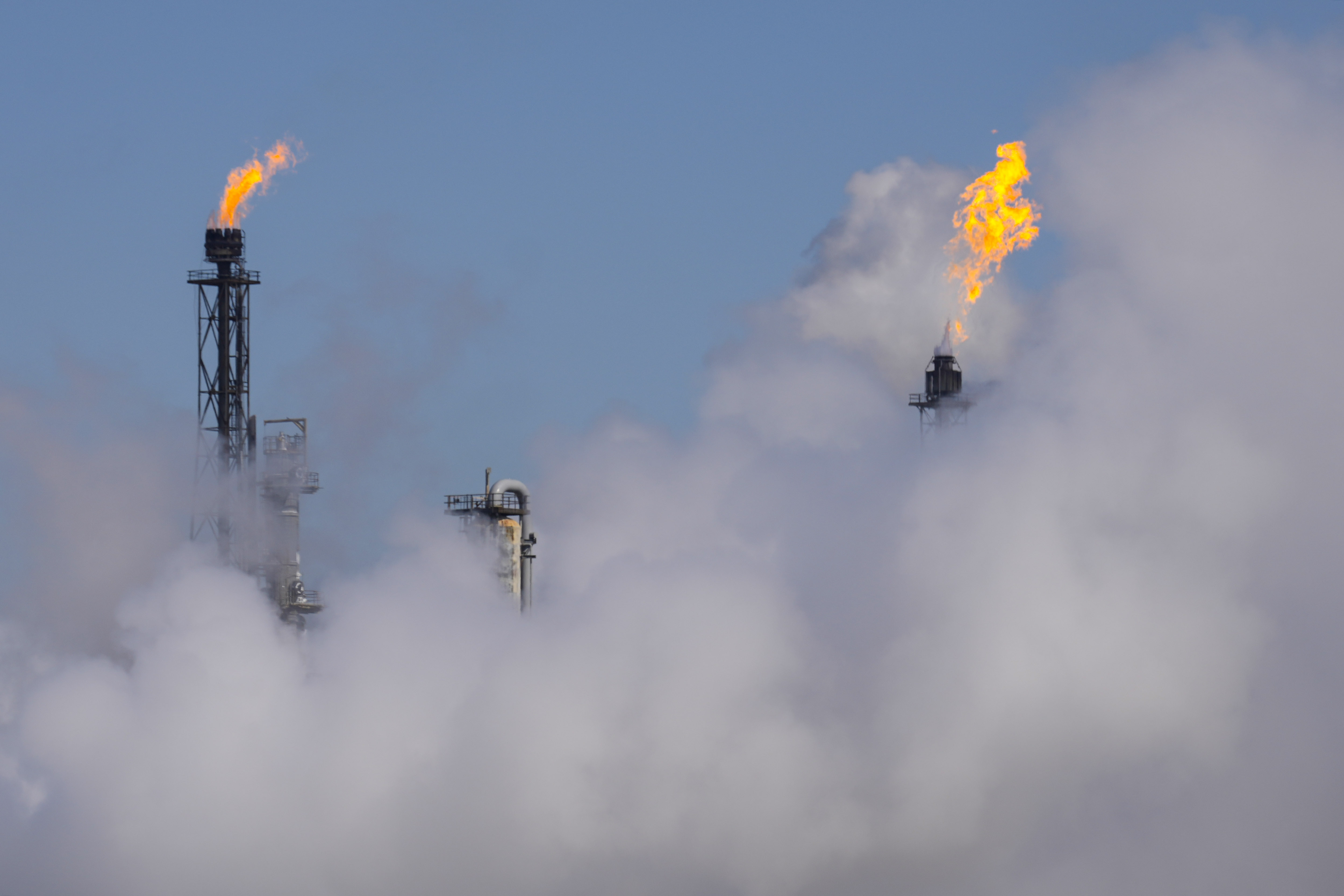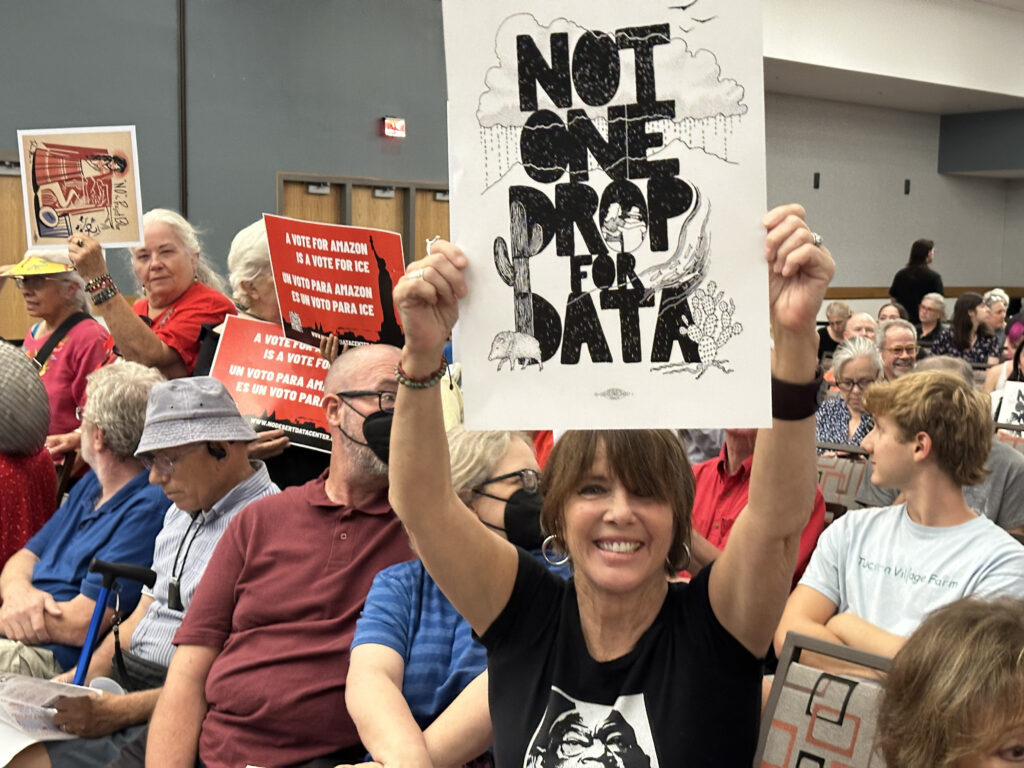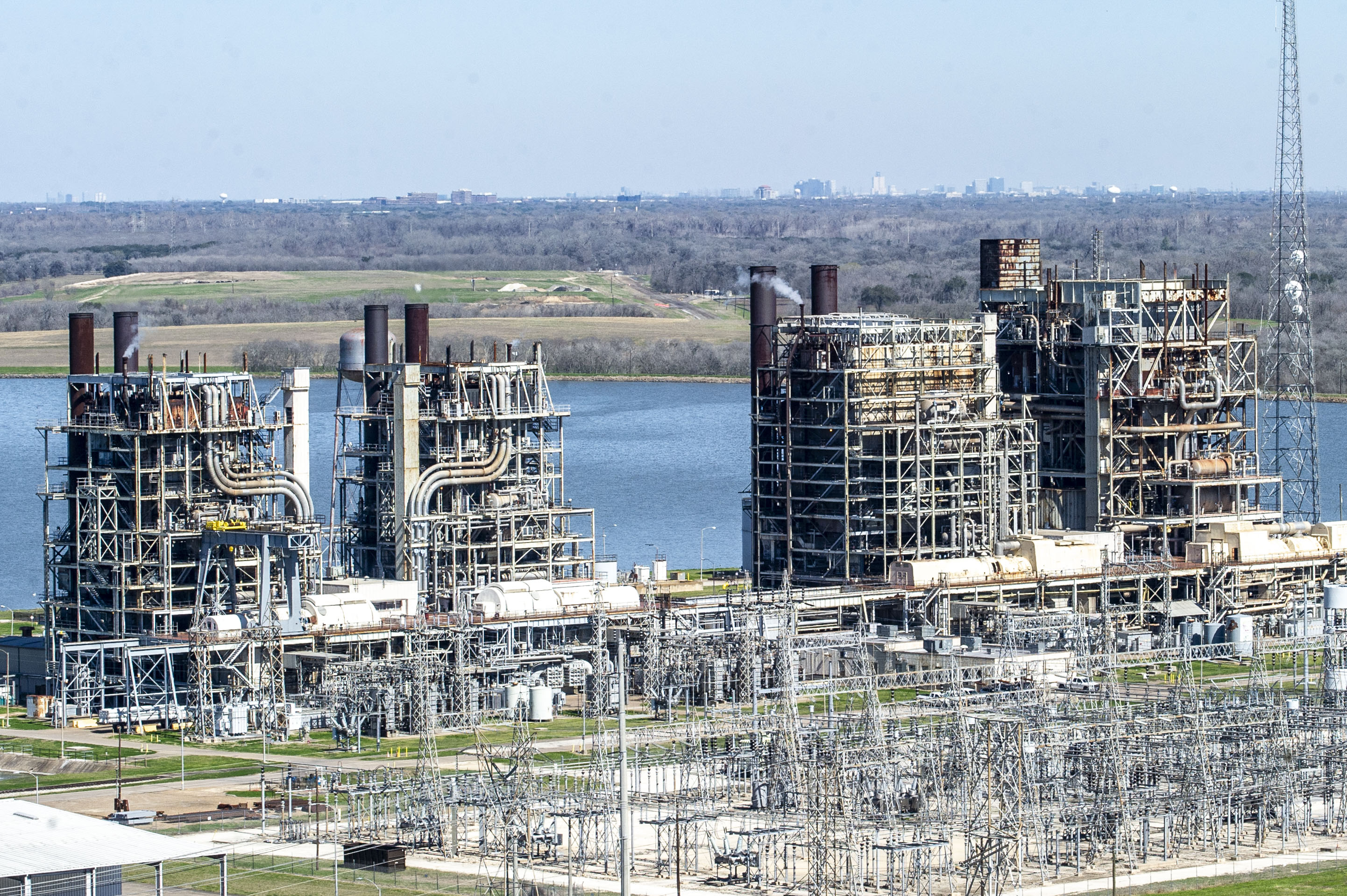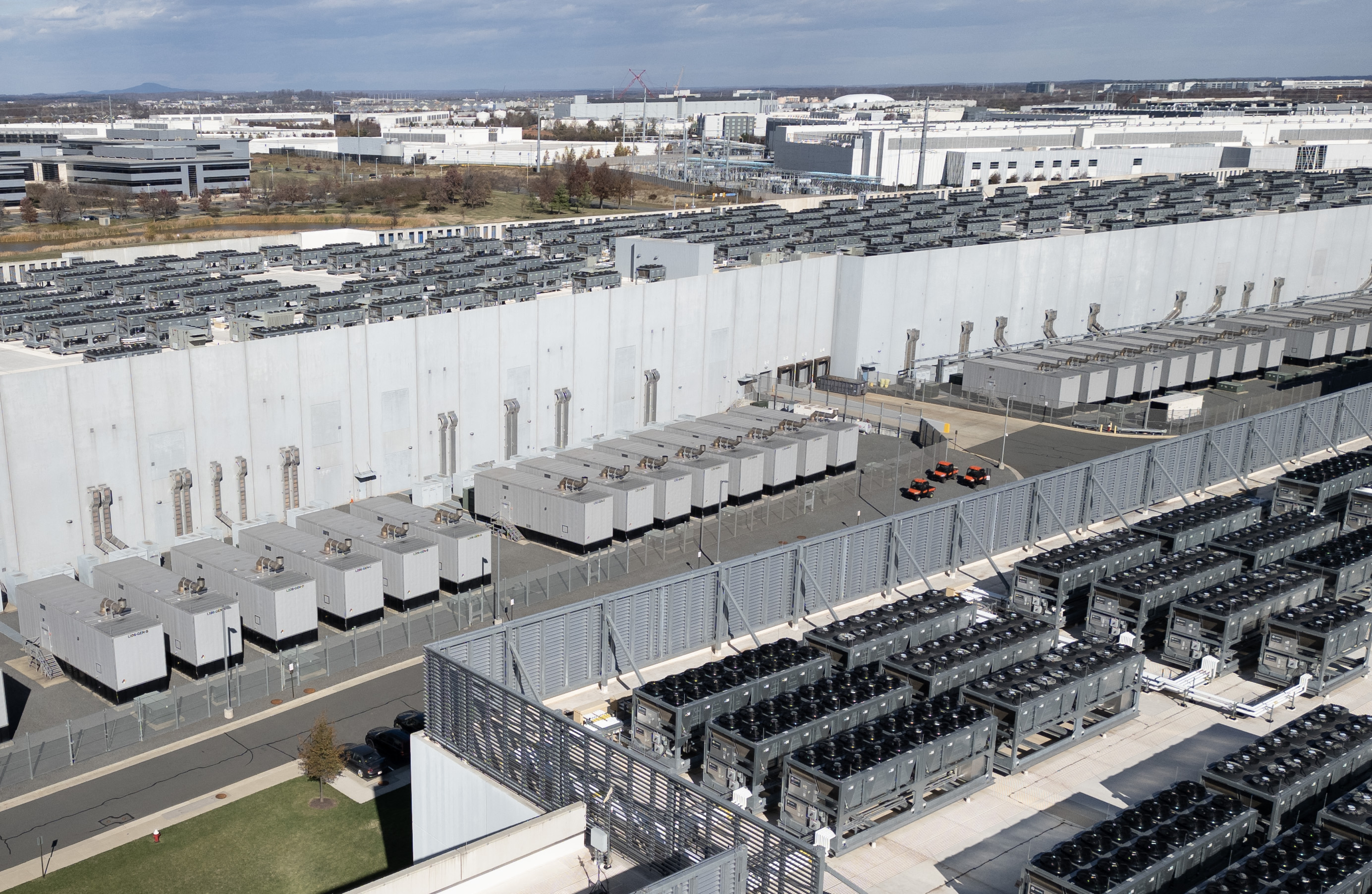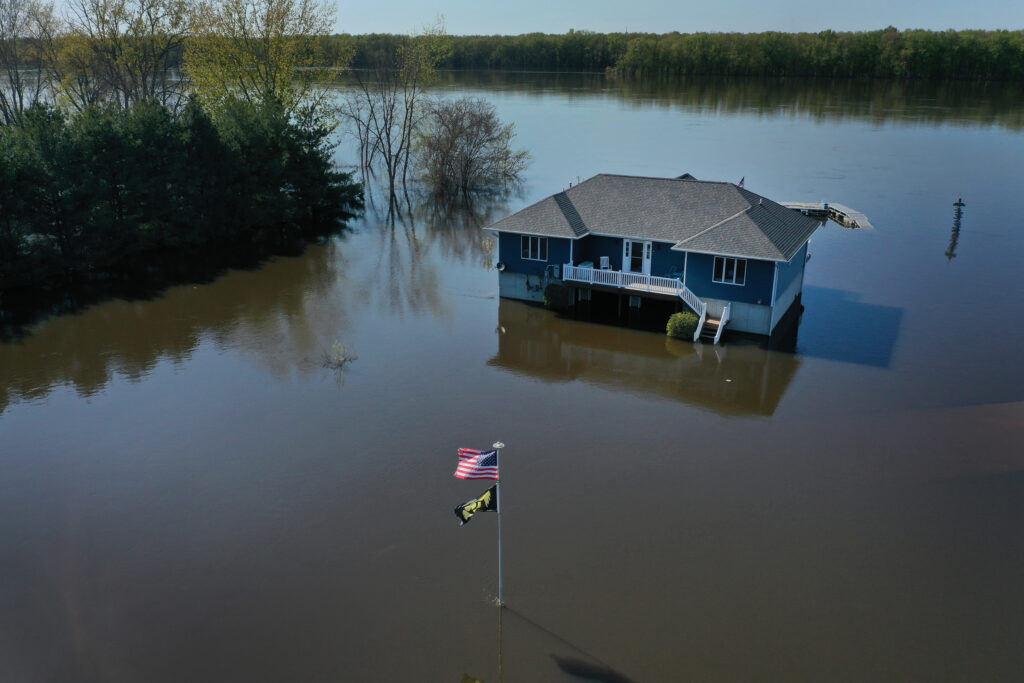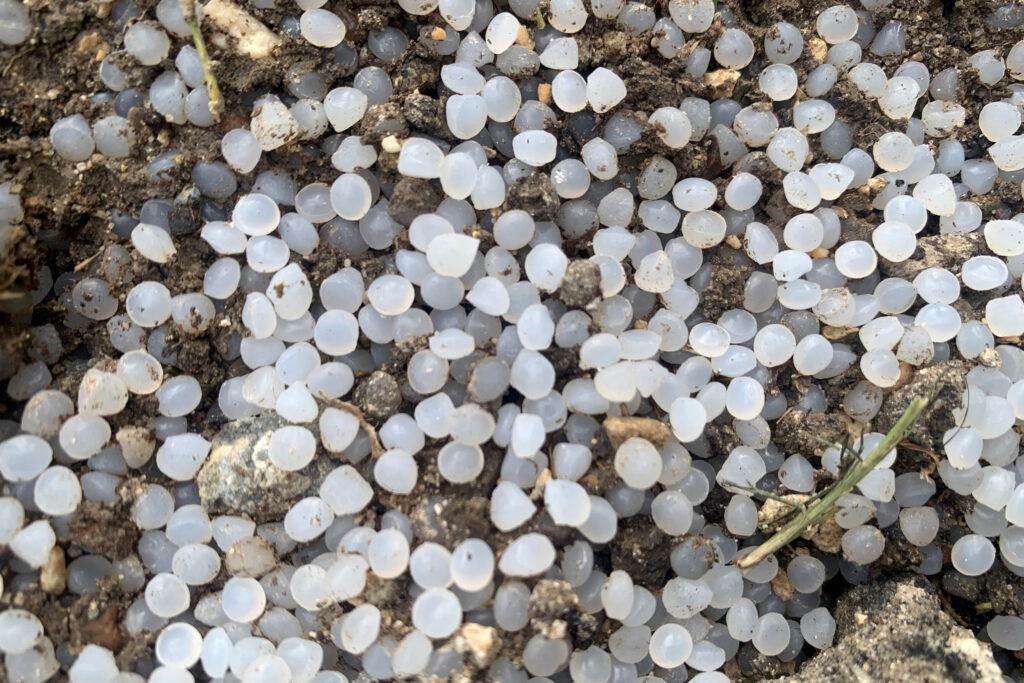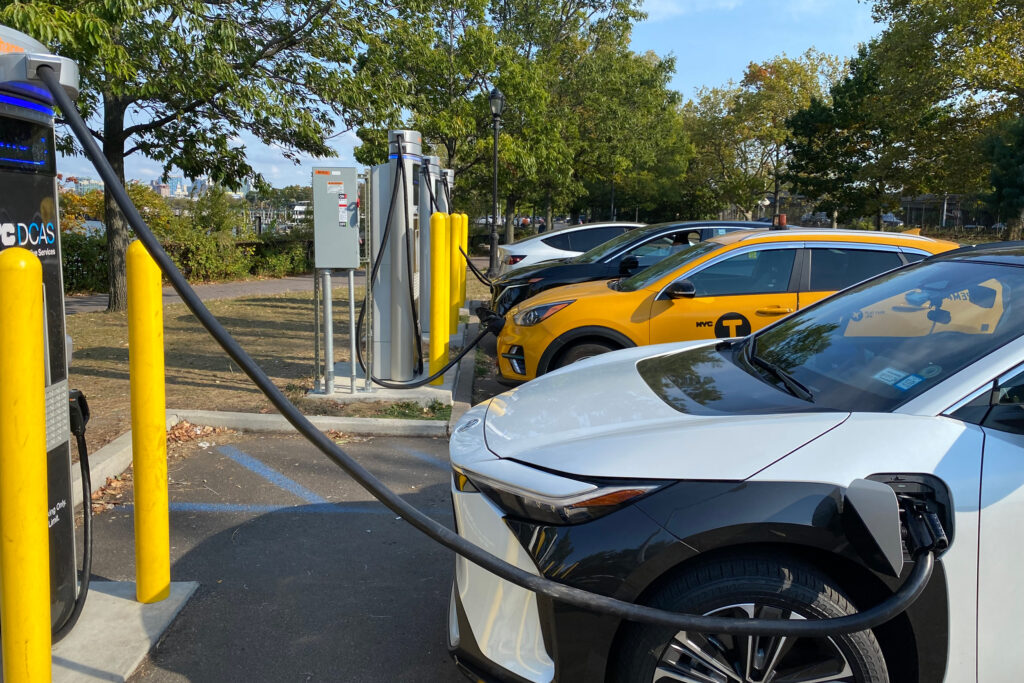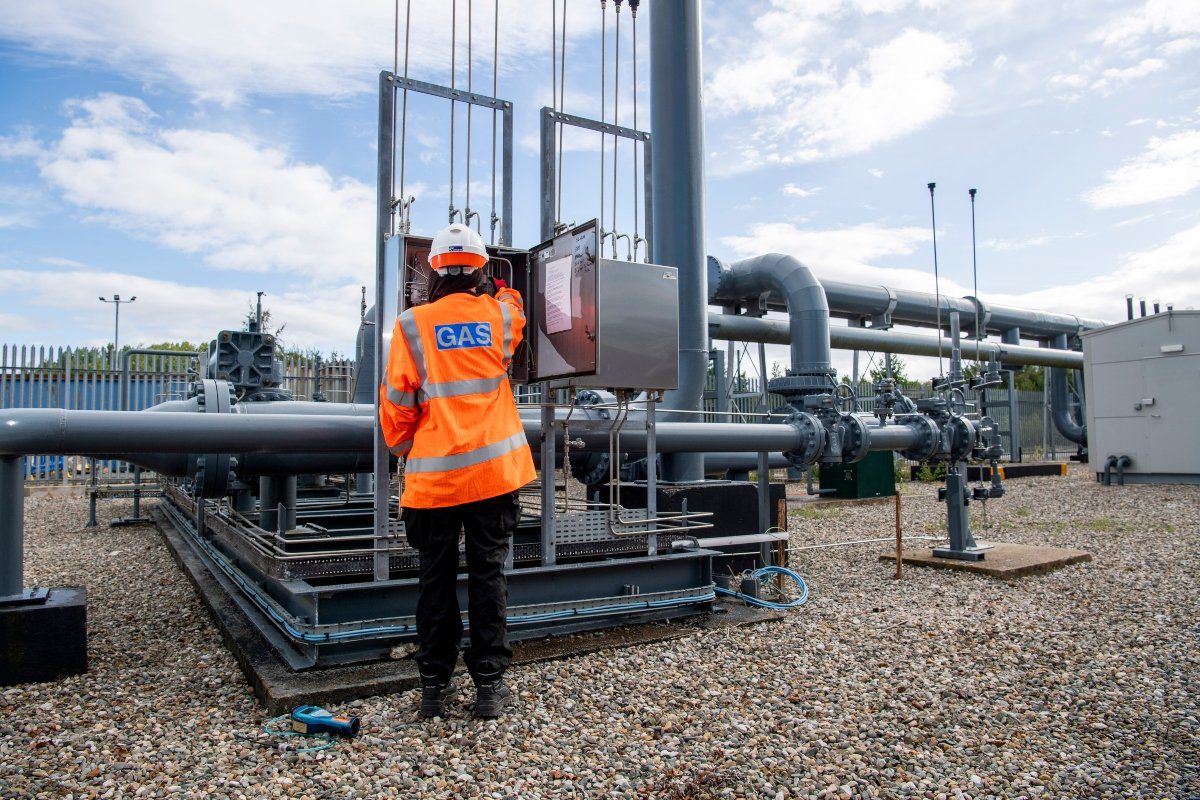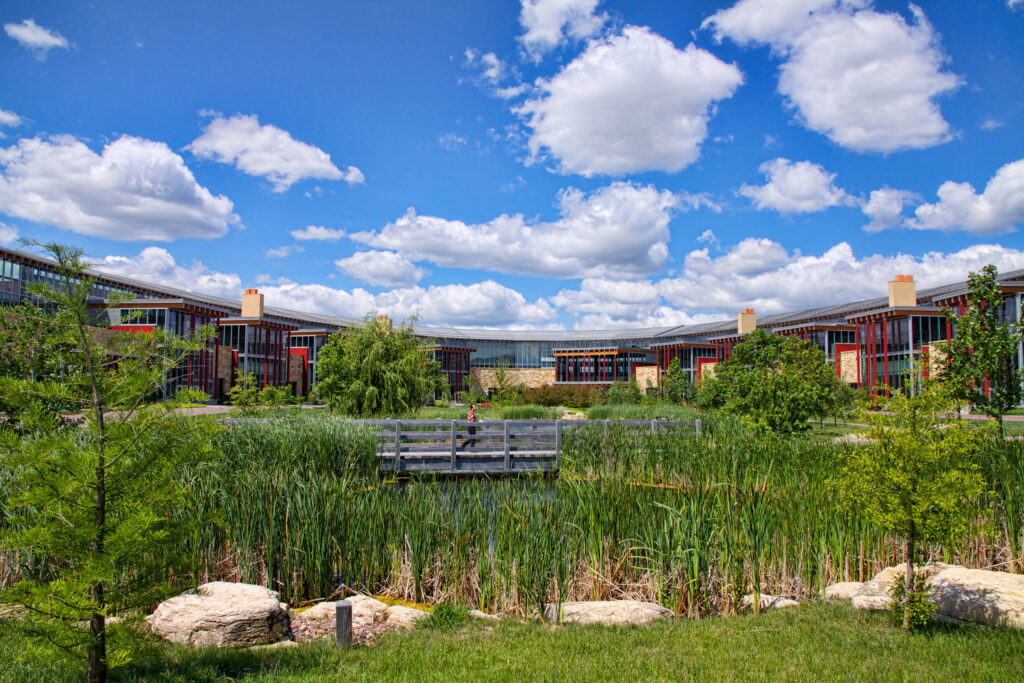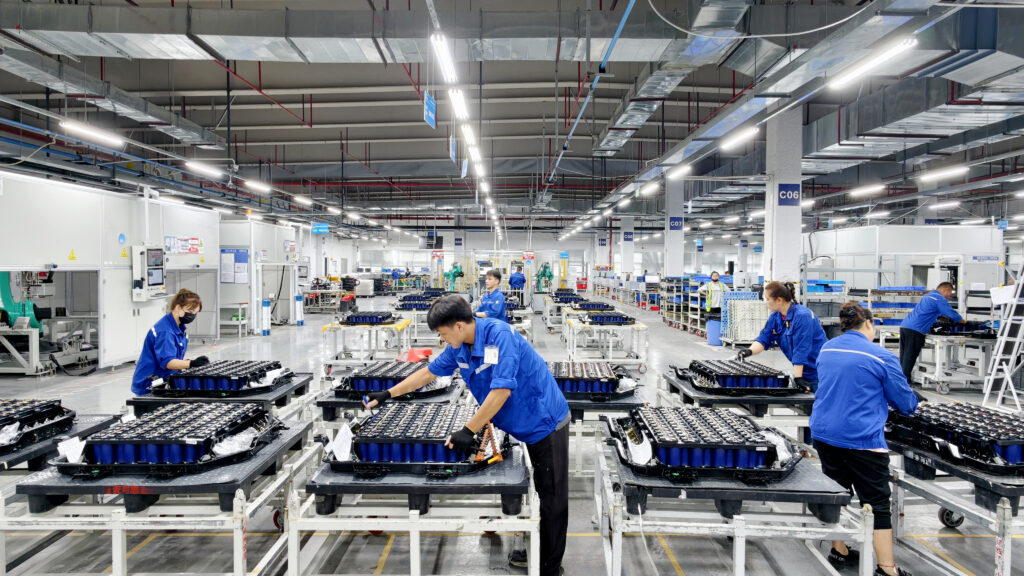Mountain Valley Pipeline LLC filed with regulators Monday official requests to build its revised Southgate extension project from Southwest Virginia into North Carolina.
In a filing with the Federal Energy Regulatory Commission (FERC), MVP is seeking issuance of an amended certificate of public convenience and necessity by the end of this year to construct about 31.3 miles of 30-inch diameter natural gas pipeline to deliver up to 550,000 dekatherms of natural gas a day to Duke Energy and Enbridge Gas North Carolina.
“To date, nearly all of North Carolina’s natural gas supply is provided by a single interstate transmission system,” said Shawn Day, a spokesperson for the Southgate project. “The MVP Southgate project will diversify the state’s natural gas supply and bolster North Carolina’s energy and economic security.”
FERC previously approved the Southgate project in 2020 with plans for it to be 75 miles of 16-inch and 24-inch pipeline that would run from the terminus of Mountain Valley Pipeline in Pittsylvania County, Virginia, into North Carolina’s Rockingham and Alamance counties and provide up to 375,000 dekatherms daily. A condition of the Southgate project getting approval was the Mountain Valley Pipeline mainline system receiving its necessary approvals.
We’re hiring!
Please take a look at the new openings in our newsroom.
See jobs
Several lawsuits against the 303-mile mainline project, proposed in 2014, brought the project to a near halt. And, in December 2021, Virginia’s State Air Pollution Control Board denied a needed air permit for a new compressor station to send gas through the Southgate project.
Then, in June 2023, former West Virginia Sen. Joe Manchin included a provision in a federal spending bill that approved the pipeline and stripped away the ability of outside groups to file legal challenges. In December of that year, MVP announced it would revive the Southgate project and received an extension to complete it given the delays the mainline project faced. Environmental groups are challenging the extension in the Court of Appeals for D.C. Circuit Court.
Last year, the mainline project went into service, delivering up to 2 billion cubic feet, or 2 million dekatherms, a day of natural gas from Wetzel County, West Virginia, to Transcontinental Gas Pipeline Company’s existing 165 compressor station in Transco Village, near Chatham in Pittsylvania County, Virginia.
“This new project proposed by Southgate developers, shielded in a FERC amendment, is unnecessary and dangerous to the communities, air, water and species along its intended route,” Jessica Sims, Virginia field coordinator at Appalachian Voices, a nonprofit environmental group, said in a statement. “We’ve seen the abject misery that Southgate’s developers inflicted with their Mountain Valley Pipeline, and that history should not be repeated—FERC should deny this amendment.”
According to the application with FERC, the proposed Southgate extension project would end in Rockingham County, North Carolina, and no longer need the compressor station.
Some 300,000 dekatherms of natural gas a day are committed to Duke Energy, and the remaining 250,000 dekatherms per day would be delivered to Enbridge Gas North Carolina, each for 20-year contract terms with five-year extension options. A dekatherm is a unit of energy that measures the heating power of natural gas. One dekatherm equals 100,000 British Thermal Units (BTUs).
The route would follow the previously certified route, with “minor deviations in certain locations,” with East Tennessee Natural Gas connecting with the proposed project at milepost 28.2, according to the application.
The company has acquired 100 percent of the easements, which are needed to build on the land, in North Carolina and more than 95 percent of the easement in Virginia, with the rest expected to be “acquired in 2025 without the use of eminent domain.”
Crystal Cavalier-Keck, co-founder of 7 Directions of Service, a group representing Indigenous people living in the region, noted that the route of the project is shorter, but the width of the pipe has increased. MVP’s application comes as a separate pipeline, the Williams Transco Southeast Supply Enhancement Project, is proposed to run alongside the potential Southgate route.
“Our regulators must reject Southgate’s attempts to downplay these developments as minor, and ensure the project follows procedures from square one, where community concerns can be fully heard,” said Cavalier-Keck.
The Southern Environmental Law Center, which declined to comment on any potential litigation over the project, opposed the proposal Monday, expressing concern over climate-changing methane in the gas that is increasingly sought after by Southern utilities, not to satisfy consumer demands, but to meet energy needs from data centers.
“There is no sensible scenario where all this gas, including MVP Southgate, is truly needed by Southern communities,” said Megan Gibson, a senior attorney at SELC, in a statement. “Instead, these proposals are driven by corporate profits, including a near guaranteed 14 percent return on equity for FERC-approved projects like MVP Southgate, and tech giants seeking a cheap, fast way to connect to the grid with gas power. This ultimately will hurt consumers and businesses within our region.”
Mountain Valley Pipeline LLC cites in its application Duke Energy’s projection of “significant” energy demand, in addition to the loss of 8,400 megawatts of coal-fired electricity generation by 2035, as coal plants are retired. Duke Energy is telling its regulators that the gas is needed to support its existing generation fleet and three combined cycle turbines, which use gas and waste heat differently than simple cycle turbines that use only gas, according to MVP. The turbines are needed to comply with North Carolina’s House Bill 951, which passed in 2021 and mandates that Duke Energy cut its carbon emissions by 70 percent from 2005 levels by 2030.
Enbridge, with over 13,000 miles of natural gas distribution and transmission pipeline in North Carolina, is building a liquified natural gas storage facility in Person County, North Carolina, and added about 10,000 new customers over the past 10 years. The Southgate project is “the most efficient and cost-effective way to meet capacity requirements, enhance reliability and provide the diversity of supply needed to meet PSNC’s customer’s needs,” MVP said in its application.
Day, the MVP spokesperson, said the Southgate route will pass through the Southern Virginia Mega Site at Berry Hill and be an “open-access pipeline,” allowing new and existing end users nearby to tap into it.
“Construction is targeted to begin in 2026 to achieve a target in-service date of mid-2028,” Day said, adding the project will contribute more than $1.4 million in annual tax revenue to communities. “Construction is expected to support nearly 1,000 direct, indirect and induced jobs in Virginia and North Carolina.”
About This Story
Perhaps you noticed: This story, like all the news we publish, is free to read. That’s because Inside Climate News is a 501c3 nonprofit organization. We do not charge a subscription fee, lock our news behind a paywall, or clutter our website with ads. We make our news on climate and the environment freely available to you and anyone who wants it.
That’s not all. We also share our news for free with scores of other media organizations around the country. Many of them can’t afford to do environmental journalism of their own. We’ve built bureaus from coast to coast to report local stories, collaborate with local newsrooms and co-publish articles so that this vital work is shared as widely as possible.
Two of us launched ICN in 2007. Six years later we earned a Pulitzer Prize for National Reporting, and now we run the oldest and largest dedicated climate newsroom in the nation. We tell the story in all its complexity. We hold polluters accountable. We expose environmental injustice. We debunk misinformation. We scrutinize solutions and inspire action.
Donations from readers like you fund every aspect of what we do. If you don’t already, will you support our ongoing work, our reporting on the biggest crisis facing our planet, and help us reach even more readers in more places?
Please take a moment to make a tax-deductible donation. Every one of them makes a difference.
Thank you,




